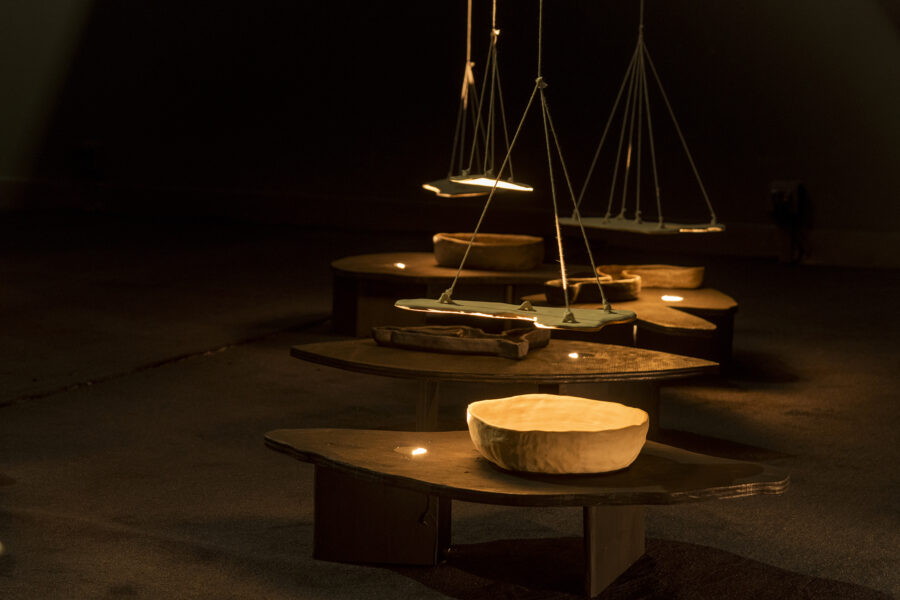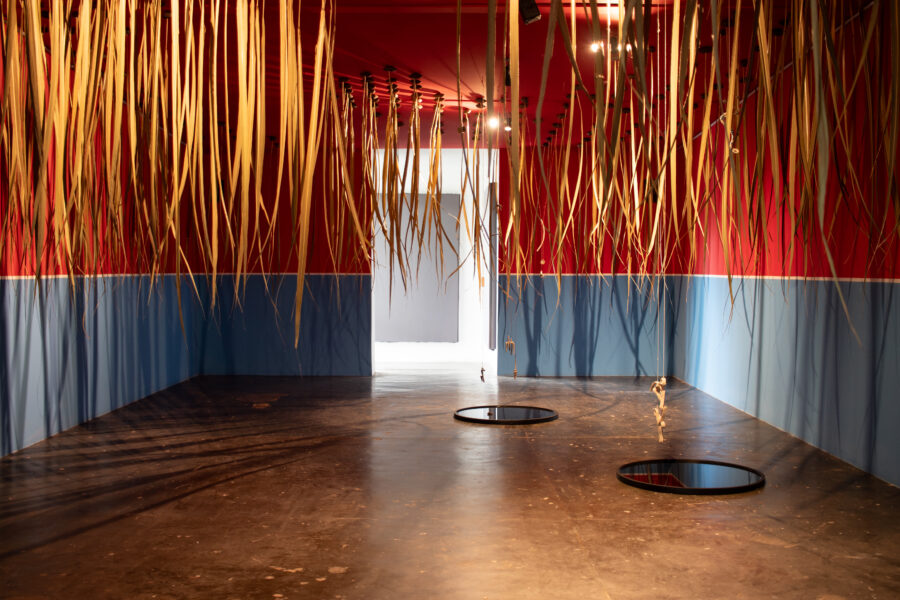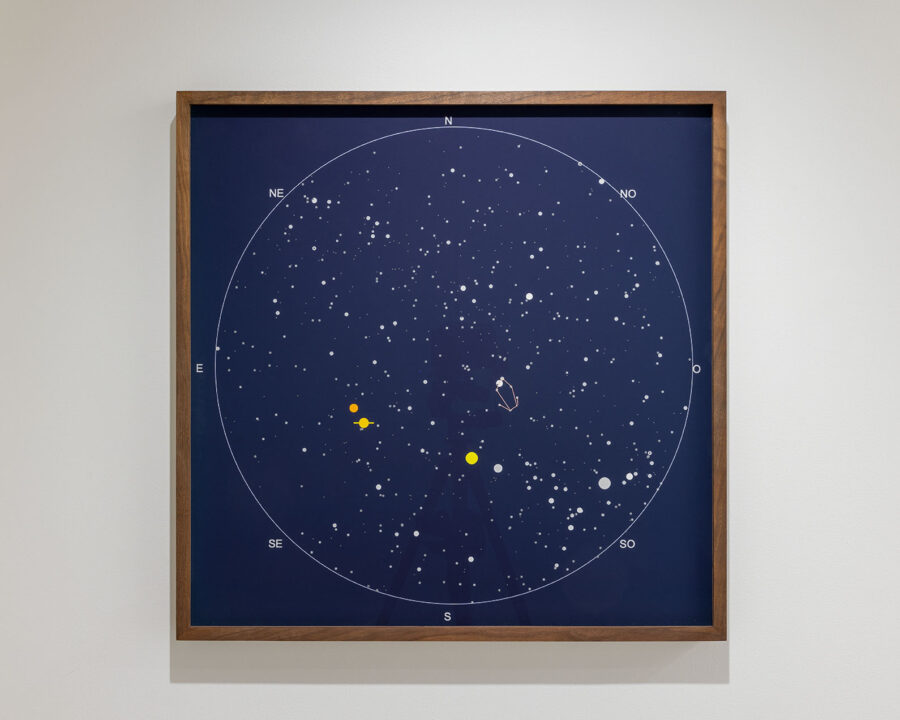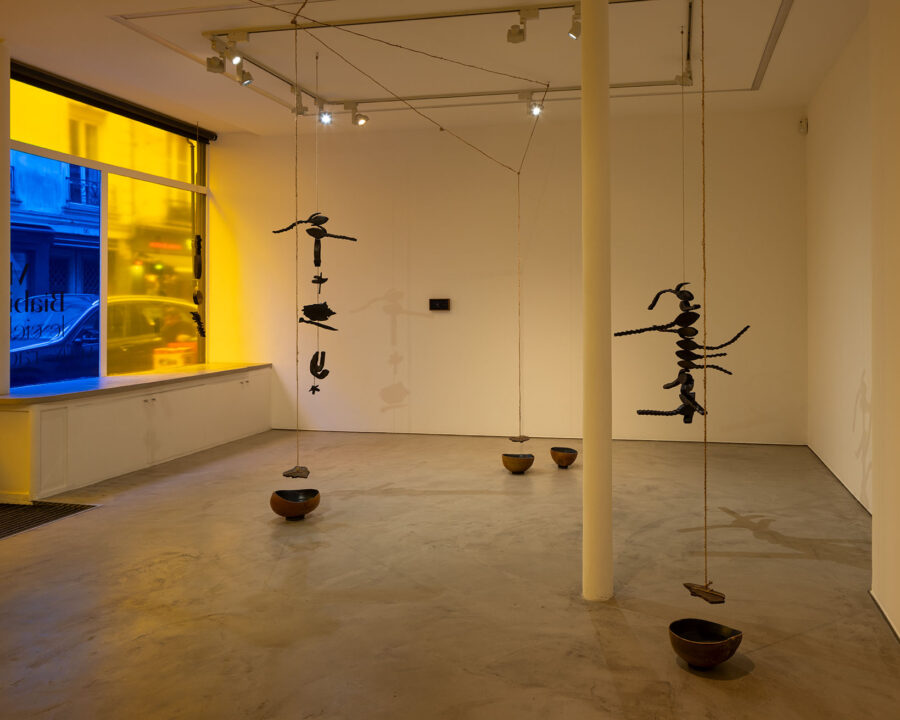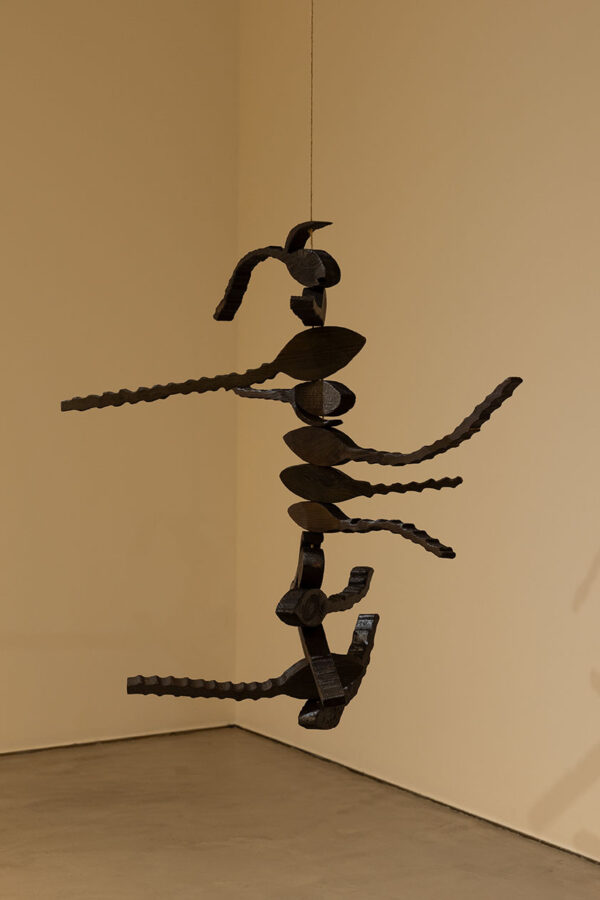Minia Biabiany
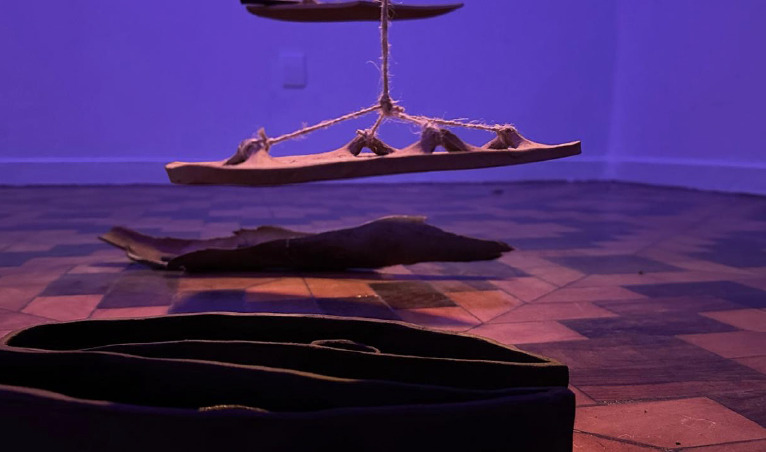






Inkjet print on paper, framed
61,6 x 61,6 x 4 cm
Edition of 3 + 2AP
Photo : Tadzio
[+]Inkjet print on paper, framed
61,6 x 61,6 x 4 cm
Edition of 3 + 2AP
Photo : Tadzio
[-]6 ceramics, 7 calabash gourds, brass, banana fiber rope
Variable dimensions
Unique
Photo : Tadzio
[+]6 ceramics, 7 calabash gourds, brass, banana fiber rope
Variable dimensions
Unique
Photo : Tadzio
[-]Burnt wood sculptures, linen thread
Variable dimensions
Unique
Photo : Tadzio
[+]Burnt wood sculptures, linen thread
Variable dimensions
Unique
Photo : Tadzio
[-]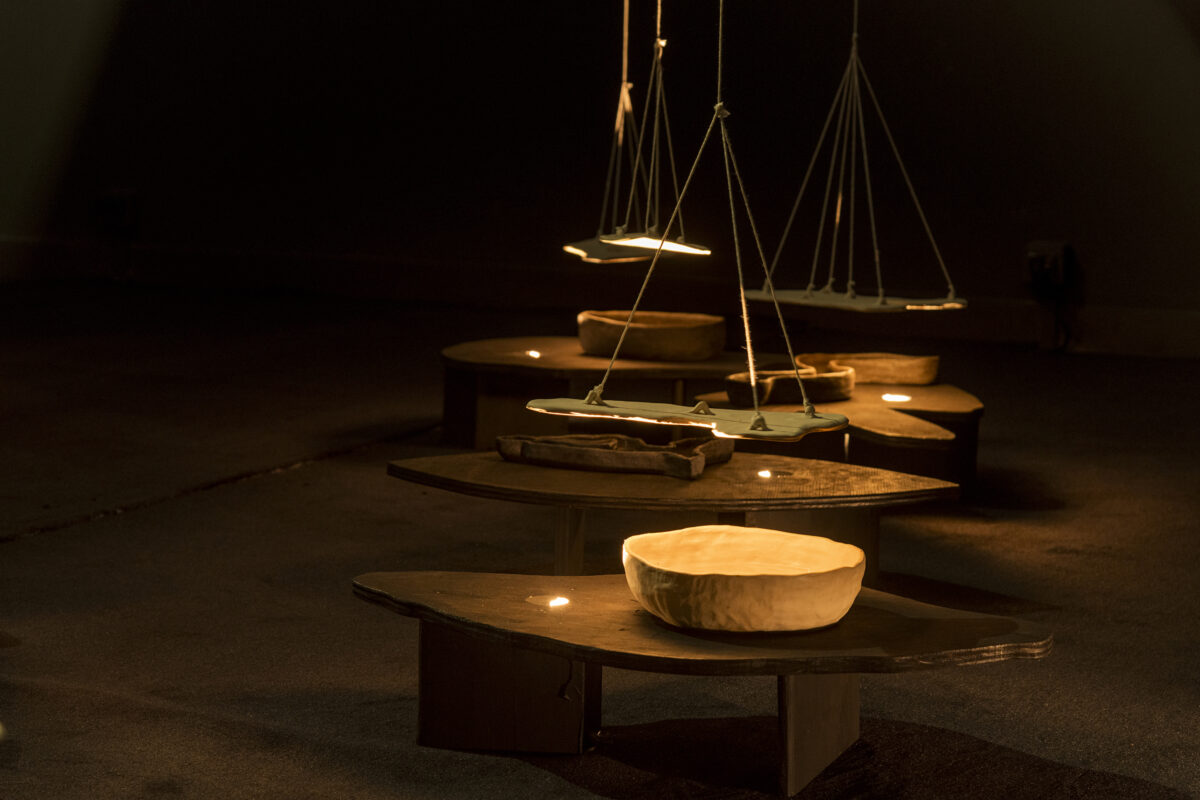
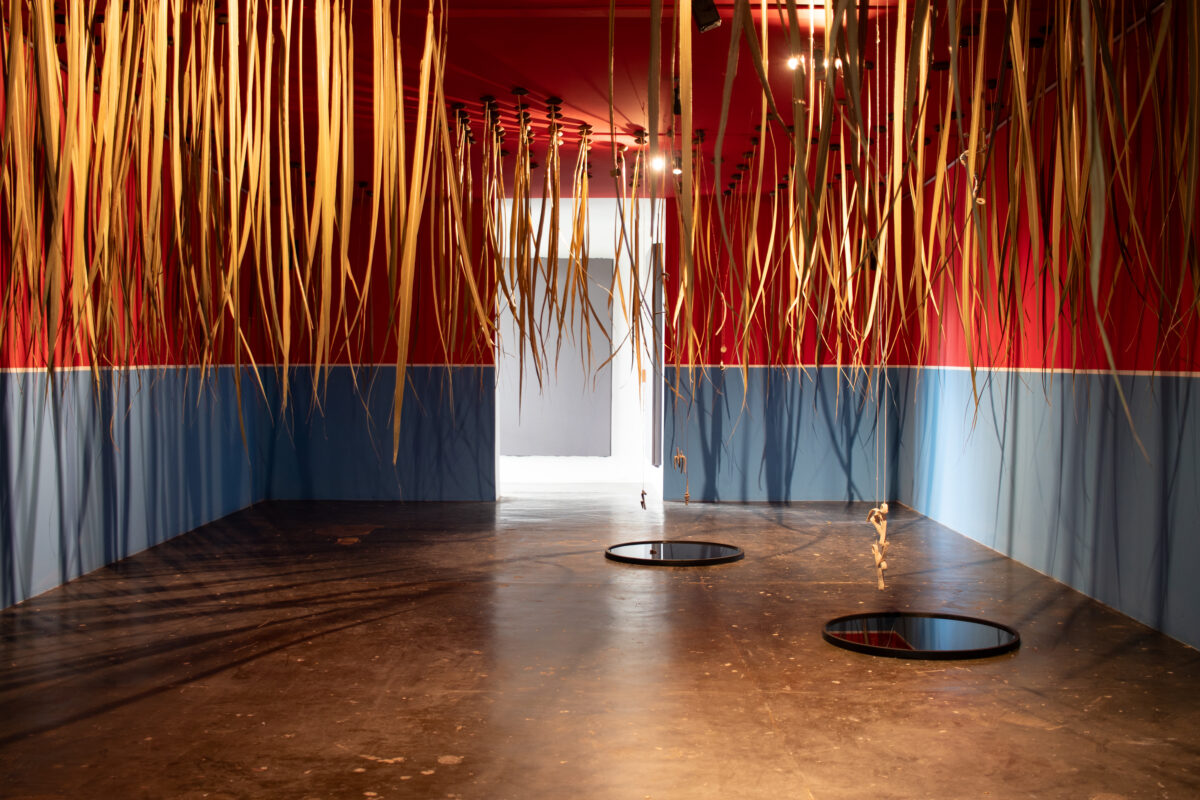

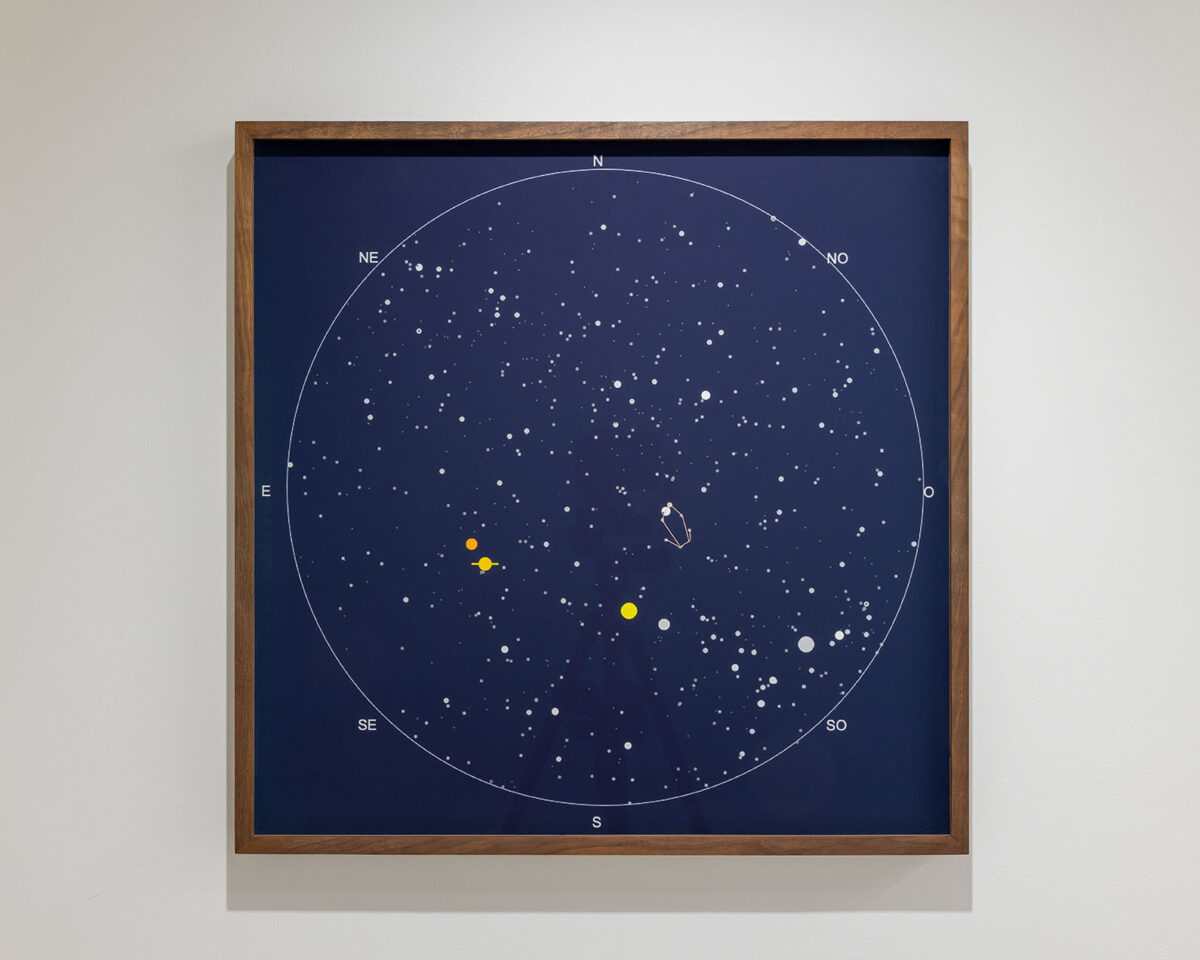
Inkjet print on paper, framed
61,6 x 61,6 x 4 cm
Edition of 3 + 2AP
Photo : Tadzio
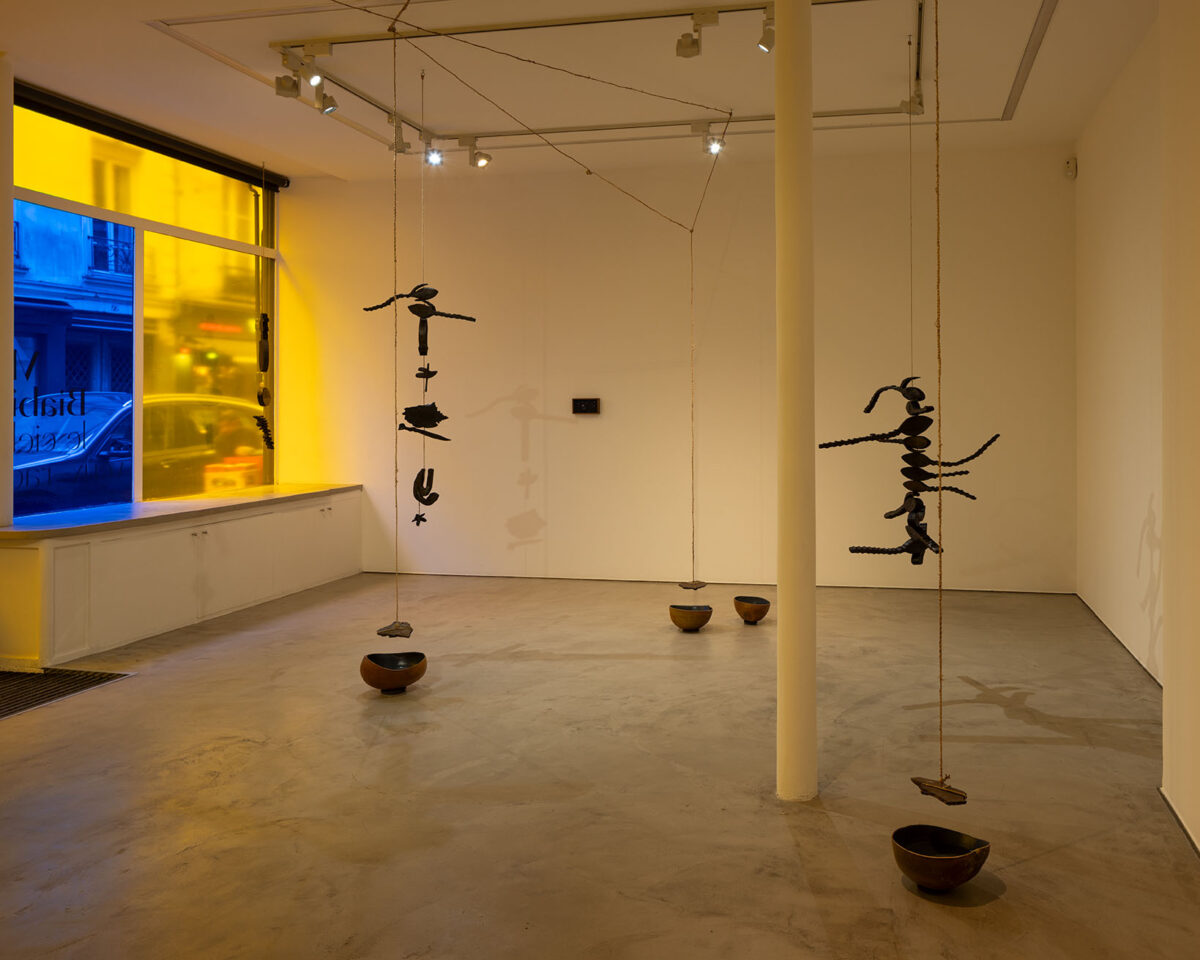
6 ceramics, 7 calabash gourds, brass, banana fiber rope
Variable dimensions
Unique
Photo : Tadzio
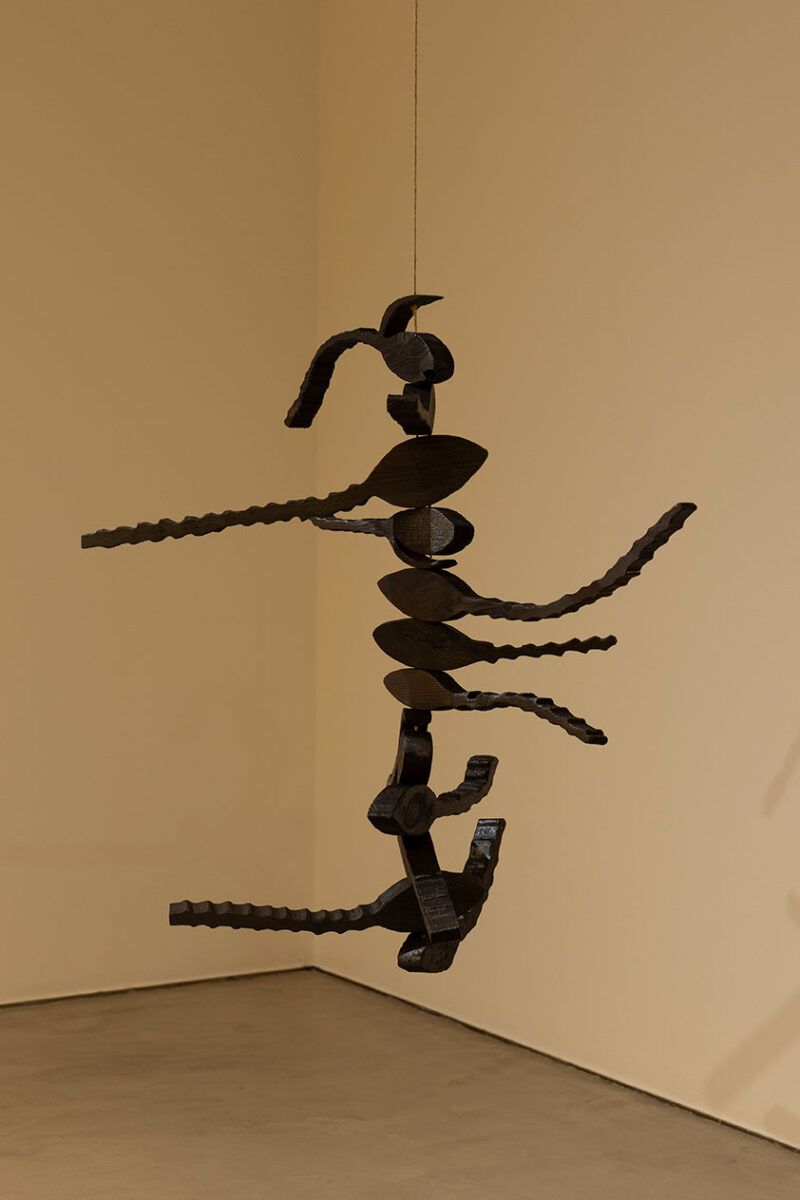
Burnt wood sculptures, linen thread
Variable dimensions
Unique
Photo : Tadzio
